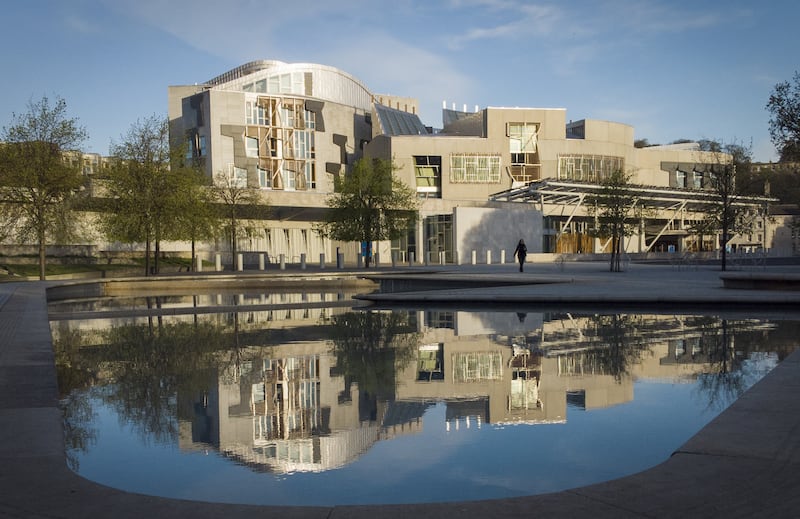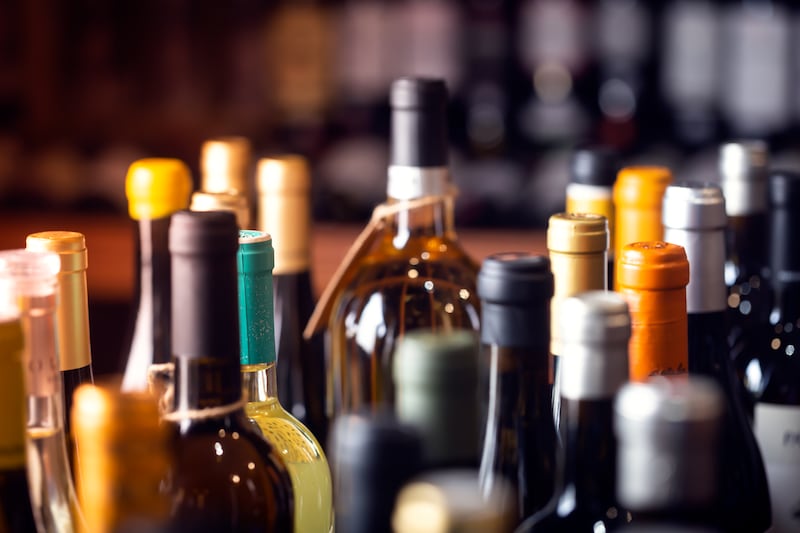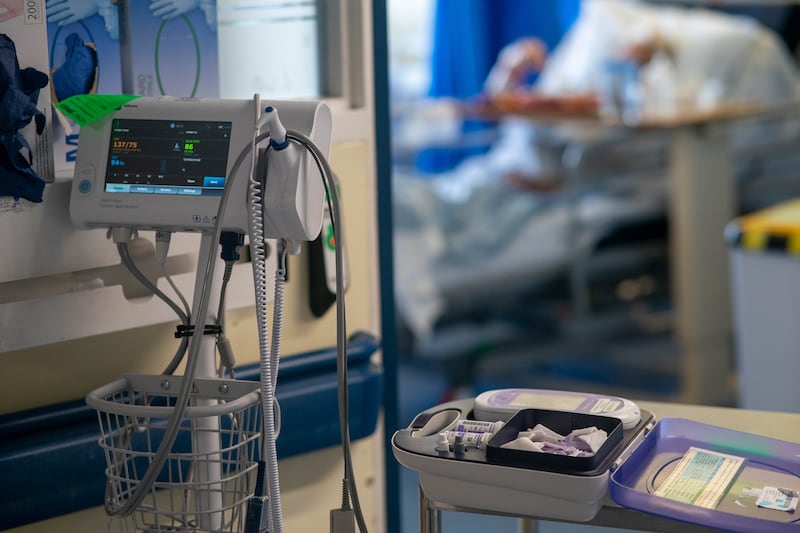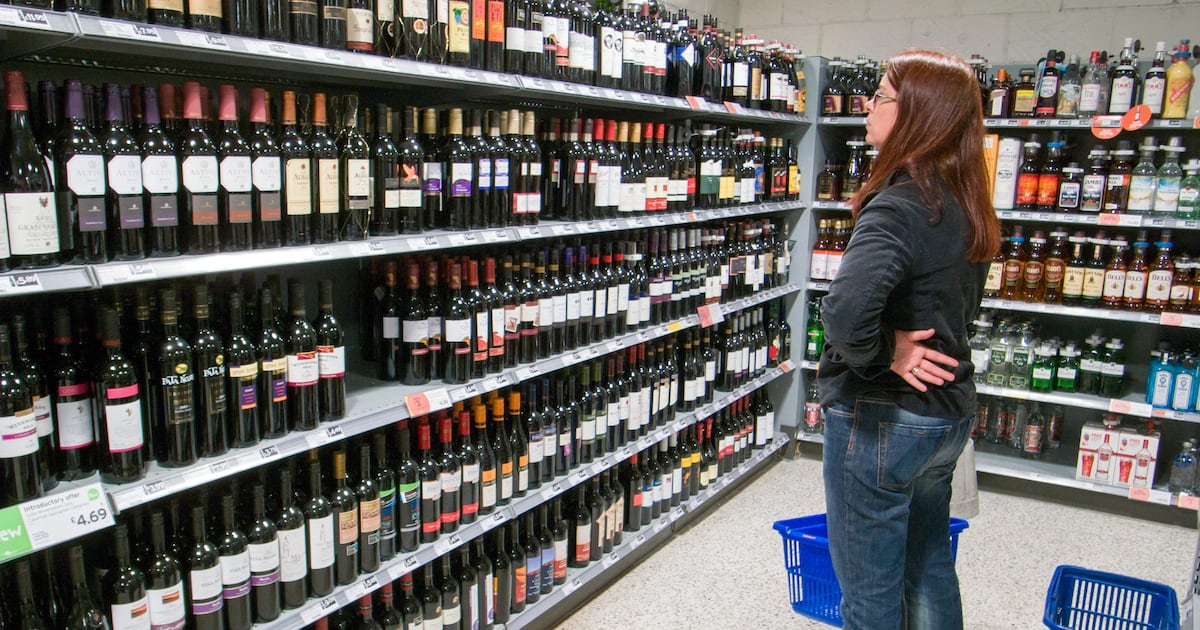While already in place in the Republic, Scotland and Wales, there is currently no minimum alcohol pricing in the north.
On Friday, The Irish News revealed that the DUP was blocking the implementation of the policy, according to Executive sources.
While the party did not confirm that it was responsible for holding up the policy, it did say that it had “raised concerns about the limited evidence” of the positive impact of such policies.
More: DUP blocking Stormont minimum alcohol pricing policy, say senior executive sources
What is minimum alcohol pricing?
Minimum alcohol pricing, also known as minimum unit pricing (MUP), is a legal baseline price at which a unit of alcohol can be sold.
 The Scottish Government was the first in the world to introduce minimum alcohol pricing in 2018. (Jane Barlow/PA)
The Scottish Government was the first in the world to introduce minimum alcohol pricing in 2018. (Jane Barlow/PA)
It is not a tax, but rather aims to reduce the availability of cheap alcohol on supermarket shelves.
One unit equates to 10ml or 8g of pure alcohol, which is the amount an average adult can process in an hour.
In Scotland, which was the first country in the world to introduce the policy in 2018, the minimum price per unit is set at 65p.
This means that a standard bottle of wine containing 10 units cannot be sold for less than £6.50.
The minimum unit price is 50p in Wales, while the Republic’s minimum pricing is based on a rate of 10 cent per gram of alcohol.
 A minimum unit price of 65p means an average bottle of wine will cost at least £6.50. (Getty Images/iStockphoto)
A minimum unit price of 65p means an average bottle of wine will cost at least £6.50. (Getty Images/iStockphoto)
This means that a ‘standard drink’ in the Republic (10g of alcohol), such as a half pint of 4.5% lager or 100ml glass of 12.5% wine can’t be sold for less than €1.
What has the impact been of introducing the policy elsewhere?
According to policy campaigner group Alcohol Health Alliance (AHA), alcohol price and harm are “closely linked”.
“Due to its affordability, cheap, high strength alcohol is often consumed by children and vulnerable people,” the group said.
“This puts these groups at significant risk. Minimum unit pricing works by targeting the cheapest and strongest products on the market without impacting prices in pubs and bars.”
In 2023, an evaluation of the policy commissioned by the Scottish Government showed that there was “strong evidence” that it had reduced “deaths directly caused by alcohol consumption” as well as hospital admissions due to chronic causes related to alcohol.
 A report from the Scottish Government said that the policy had reduced “deaths directly caused by alcohol consumption” as well as hospital admissions due to chronic causes related to alcohol. (Jeff Moore/PA)
A report from the Scottish Government said that the policy had reduced “deaths directly caused by alcohol consumption” as well as hospital admissions due to chronic causes related to alcohol. (Jeff Moore/PA)
The report also noted that there was “no clear evidence of substantial negative impacts” on the alcohol industry or social harms at population level.
However, it did note that there was “limited evidence” to suggest the policy helped reduce consumption among those with alcohol dependence.
In February 2025, figures from the ONS also showed that alcohol-specific deaths in Scotland had reached a 15-year high.
An advocacy group at the time said it was “a result of people drinking heavily over the course of many years”.
Will it come into effect in Northern Ireland?
In October, Stormont Health Minister Mike Nesbitt said that he intended to implement a similar policy to that in Scotland.
“I have asked officials to progress work on the introduction of minimum unit pricing for alcohol, something I would like to achieve in this mandate,” he said at the time.
“And to my mind, this would complement the Tobacco and Vaping Bill that is about to go through Westminster. Both can be key contributors to tackling health inequalities.
“Alcohol pricing can only progress with Executive approval and I’ll engage ministerial colleagues in due course.”
A public consultation on setting a minimum alcohol price had also been undertaken in 2022.
However, sources told The Irish News on Friday that the policy had been delayed due to DUP concerns.
Full coverage, half price. For expert insights, analysis and commentary, subscribe to The Irish News today. Get full access for just £7.49/month. Offer ends 28th April.


